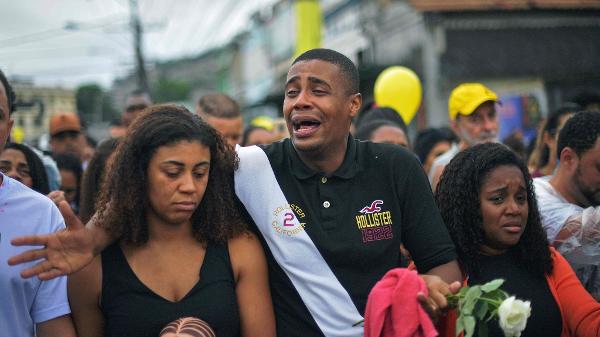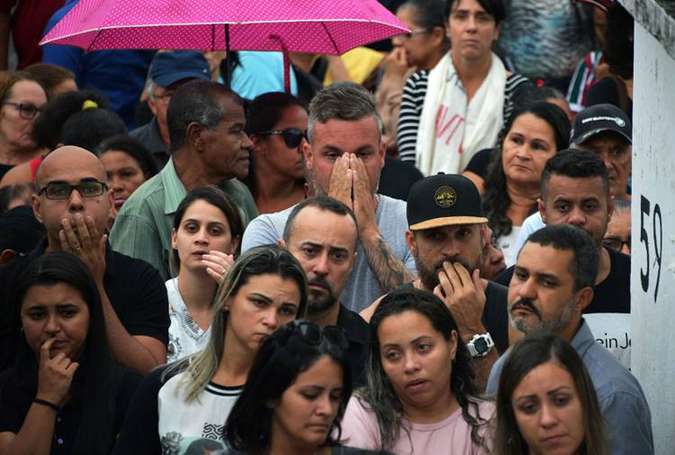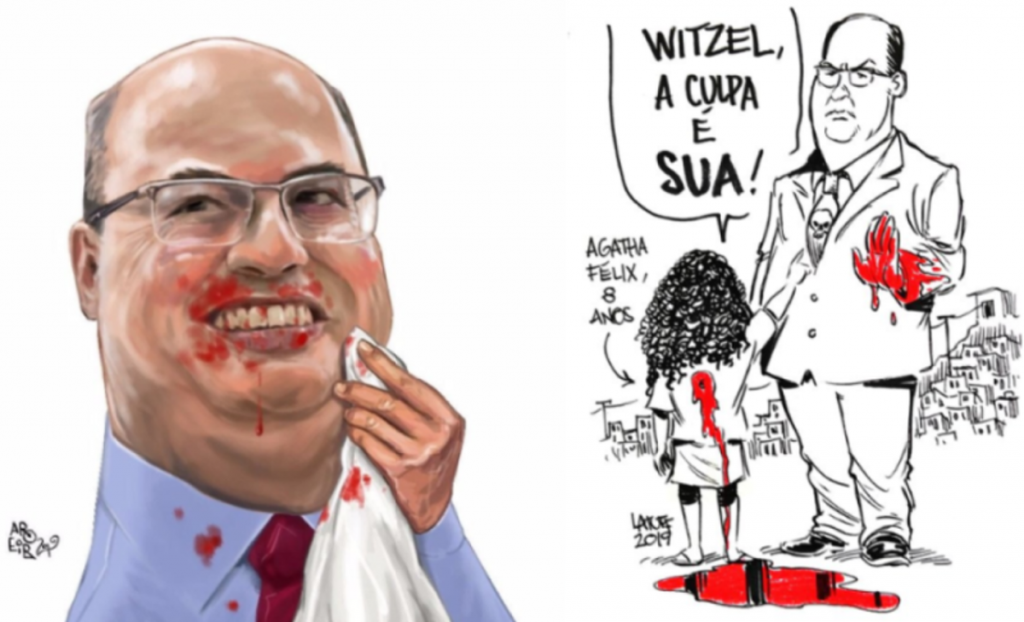RIO DE JANEIRO, BRAZIL – (Column) As I write, just a day after the death of eight-year-old Ágatha Félix, the city of Rio de Janeiro feels as if it is about to explode. The tension, anger, and raw emotion is palpable – not just in favela communities – but bubbling across the entire city.
Ágatha was traveling with her mother, Vanessa Sales, in one of the Kombi vans which provide local transport through the winding streets of the city’s Complexo do Alemão favela, when she was hit in the back by a police bullet. She died later in hospital.

Typically, there are conflicting accounts of the event. The State Police claim they were responding to an armed onslaught by local gang members. Residents and eyewitnesses insist there was no gun battle; that an officer fired at two men passing on a motorbike, missed, and in the close confines of the narrow street, hit the van, and Ágatha, instead.
After a week of full-scale military operations in favelas across the city, Ágatha’s death seems like the inevitable culmination of unrelenting police violence. Echoing the USA’s “Black Lives Matter” movement, protest banners, graffiti, and social media posts, have proliferated in the hours since her death, demanding “Parem de Nos Matar” (Stop Killing Us).
Heart-wrenching images of the adorable youngster beaming, gap-toothed, at the camera, suddenly seem inescapable. The fifth young child to have been killed in Rio’s favelas this year alone, Ágatha’s death appears to have galvanized public opinion as shocked Cariocas continue to react online, in the media, and on the streets.
What also seems to distinguish this tragedy from so many that have gone before, is the extent to which this anger is focused on one person: Rio de Janeiro’s Governor, Wilson Witzel.

A staunch supporter of President Bolsonaro’s “get tough on criminals” approach, Witzel was elected on a platform of public security, promising “slaughter” and asserting: “The right thing is to kill thugs carrying rifles.” Under his administration, he promised: “The police will do the right thing: take aim at [a thug’s] little head and …fire!”
On Saturday angry demonstrations erupted in the Complexo do Alemão community where Ágatha lived, and subsequently spread across the city, with yet more planned. The same day, the hashtag #ACulpaÉdoWitzel (it’s Witzel’s fault) led Twitter’s trending topics in Brazil. Memes and cartoons portraying a grinning, blood-stained, Governor Witzel multiplied on social media.
As of now, Governor Witzel, who rarely misses a photo opportunity with police – exemplified by his infamous victory dance in the wake of the police sniper shooting of a bus hijacker on the Niteroi Bridge – has been silent. But, given his gung-ho defense of police killings in previous interventions, it’s highly unlikely this tragedy will prompt a tactical rethink – or even a genuine expression of remorse.

Indeed, the police have already announced they do not intend to change the policy which led to Ágatha’s death. Pointing to a 21 percent fall in homicides compared to the same period last year, police spokesman Mauro Fliess insisted: “We will not back down. The state government is on the right track.”
Elsewhere, however, condemnation of the killing and the police tactics which led to it have been nearly universal. The President of the Rio bar association (OAB/RJ), Luciano Bandeira, typified many responses, characterizing the incident as “the death of a child whose only sin in life was being poor” and asking: “Why is the state security policy one of extermination?”
Thus far Governor Witzel has remained implacable in his defense of aggressively violent police tactics in favela communities. He ran on a public safety platform – however vague the actual strategy – and has already announced he plans to ride his tough-on-crime posturing to the Presidency in 2022.

What remains to be seen is whether Ágatha Félix’s seemingly pointless death will ultimately prove to be the catalyst for a popular rejection of state-sanctioned violence directed at its own citizens.
Governor Witzel has – politically at least – lived wholeheartedly by the sword. Given his predilection for public evangelizing, he must surely be familiar with the Gospel of Matthew’s proverbial warning about the potential consequences of such a strategy. The residents of Rio de Janeiro’s favela communities certainly are.

